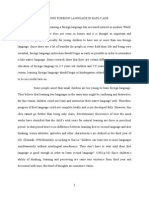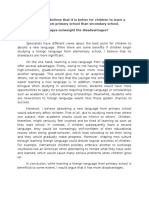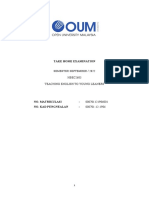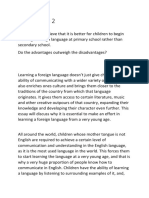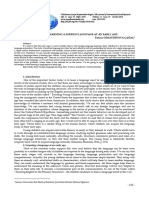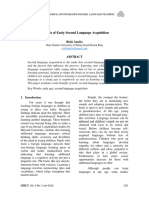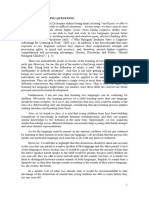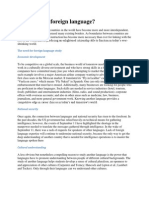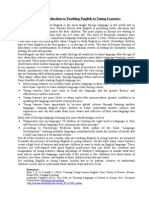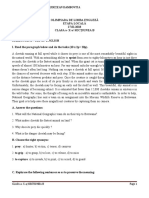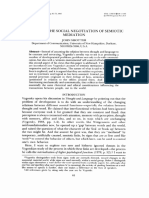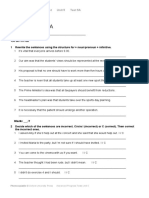0% found this document useful (0 votes)
27 views3 pagesA Story
The document discusses the advantages and disadvantages of teaching foreign languages to children, highlighting that early exposure can enhance cognitive skills and academic performance. It addresses concerns from parents and educators about potential confusion and negative effects on a child's native language. Ultimately, it supports the idea that children should learn foreign languages early due to their brain's flexibility and ability to absorb multiple languages.
Uploaded by
tan tienCopyright
© © All Rights Reserved
We take content rights seriously. If you suspect this is your content, claim it here.
Available Formats
Download as DOCX, PDF, TXT or read online on Scribd
0% found this document useful (0 votes)
27 views3 pagesA Story
The document discusses the advantages and disadvantages of teaching foreign languages to children, highlighting that early exposure can enhance cognitive skills and academic performance. It addresses concerns from parents and educators about potential confusion and negative effects on a child's native language. Ultimately, it supports the idea that children should learn foreign languages early due to their brain's flexibility and ability to absorb multiple languages.
Uploaded by
tan tienCopyright
© © All Rights Reserved
We take content rights seriously. If you suspect this is your content, claim it here.
Available Formats
Download as DOCX, PDF, TXT or read online on Scribd
/ 3









